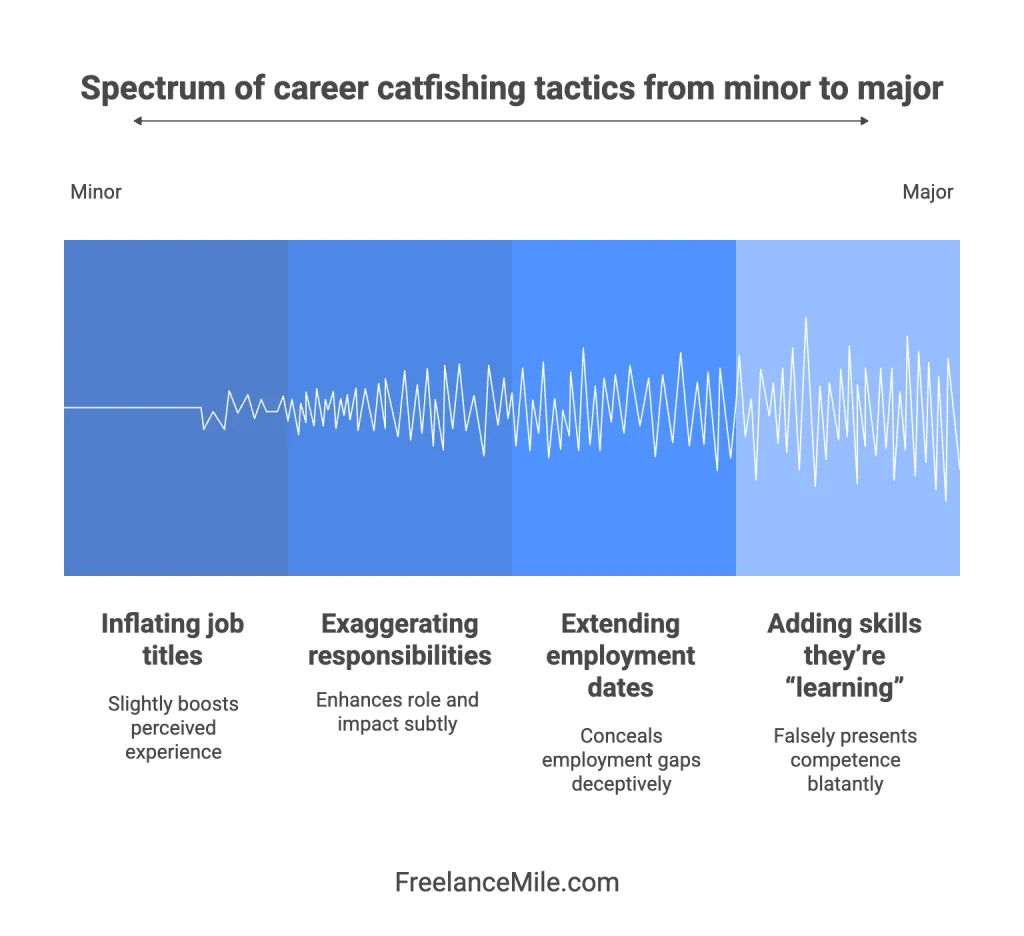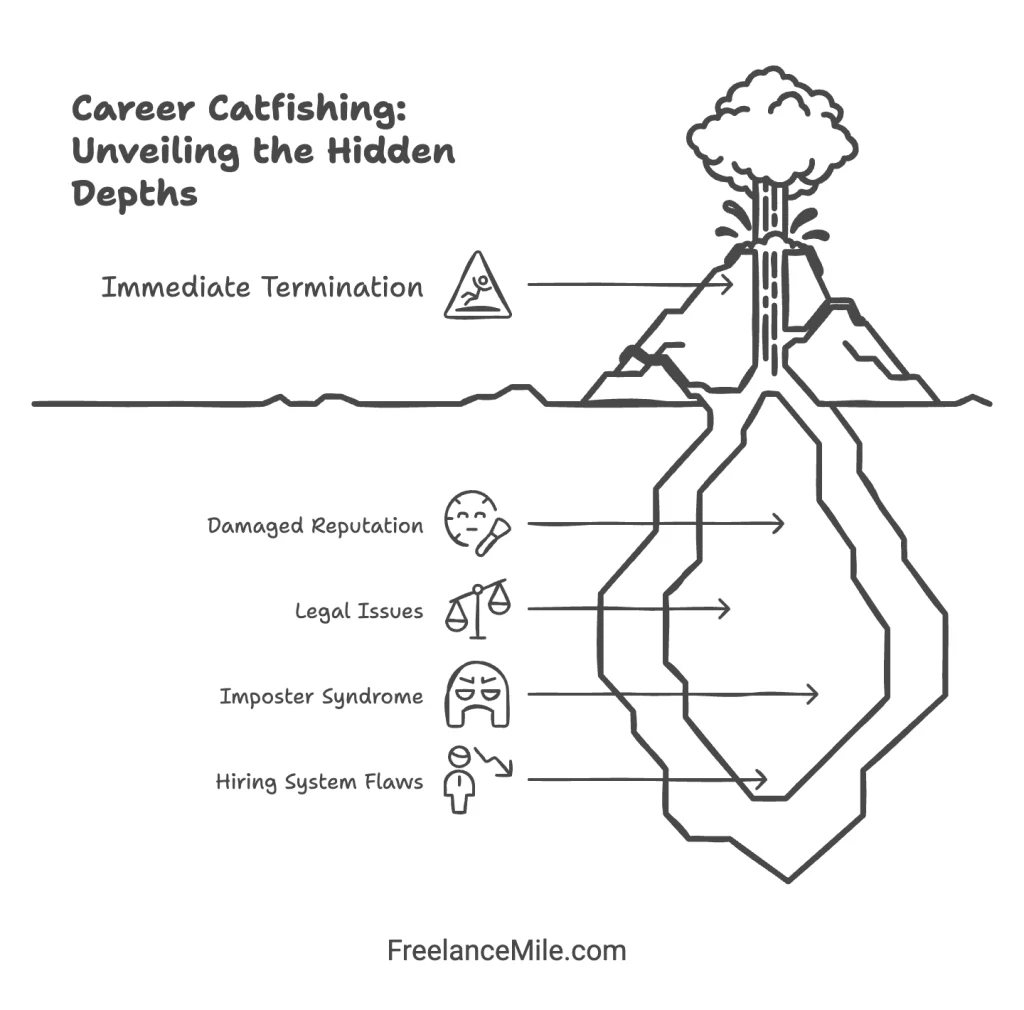The job market has become so brutal that Gen Z is resorting to “career catfishing” – embellishing or outright fabricating resume details to land interviews.
With studies showing it takes 100 to 200 applications to receive a single job offer, young job seekers are getting creative with the truth.
What Is Career Catfishing and Why It’s Happening

1. The Numbers Don’t Lie: Job Market Reality
A study has found that it takes between 100 and 200 applications to receive a job offer these days. This staggering statistic explains why desperate job seekers are willing to bend the truth on their resumes.
2. Common Career Catfishing Tactics
Gen Z job applicants are using several strategies to make themselves more appealing to employers:

3. The Desperation Behind the Deception
Unlike previous generations who might have embellished achievements, Gen Z’s career catfishing stems from economic necessity rather than ambition. Entry-level positions now require 2-3 years of experience, creating an impossible catch-22 for new graduates.
4. Social Media Influence on Professional Identity
Growing up with curated social media profiles has normalized presenting an “enhanced” version of reality. For many Gen Z job seekers, career catfishing feels like a smooth extension of their digital persona.
5. The Skills Gap Paradox
Employers complain about skills shortages while simultaneously rejecting candidates who don’t meet every requirement. This forces applicants to claim competencies they don’t yet possess, hoping to learn on the job.
The Risks and Consequences
Career catfishing can backfire spectacularly when employers discover discrepancies during background checks or when new hires can’t perform claimed skills. However, many Gen Z workers argue that the current hiring system forces their hand.
Potential consequences:

What This Means for the Job Market
The rise of career catfishing reflects deeper problems in hiring practices. When legitimate qualifications aren’t enough to secure interviews, job seekers will inevitably find alternative strategies to stand out from hundreds of other applicants.
For employers: Consider whether job requirements truly reflect the role’s needs, or if you’re contributing to the problem by demanding unrealistic qualifications for entry-level positions.
For job seekers: Focus on developing genuine skills and building authentic professional relationships rather than relying solely on resume embellishment.
The career catfishing phenomenon highlights how broken the current job market has become for young professionals. Until hiring practices become more realistic, expect this trend to continue growing among desperate job seekers.






